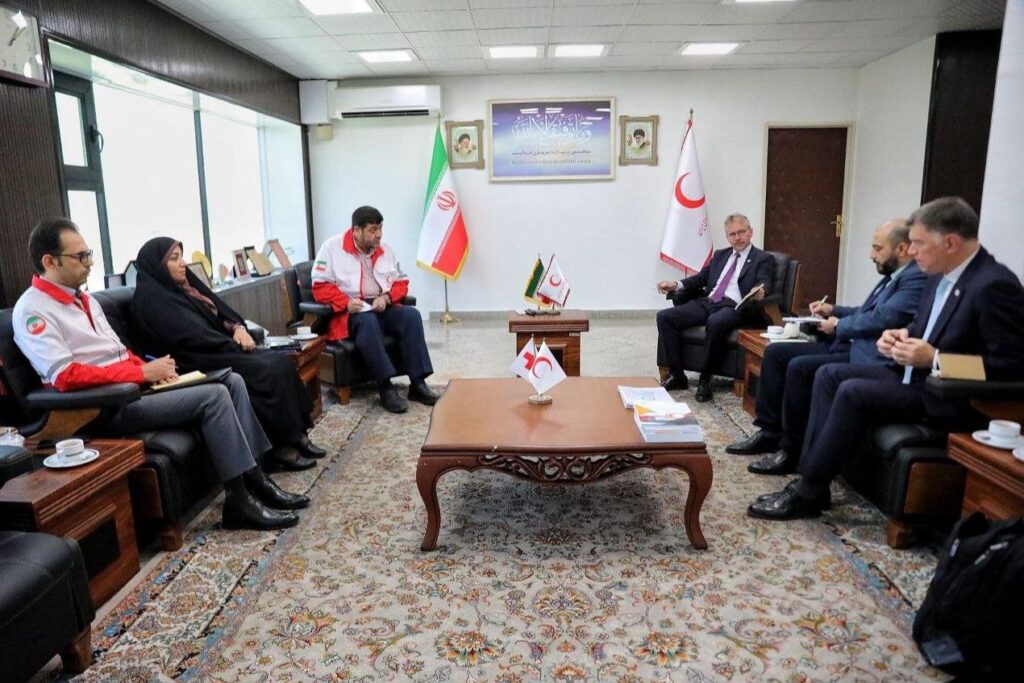Tehran – Pilhossein Koliband, head of Iran’s Red Crescent Association (IRCS), announced that he is ready to share his scientific and educational experience and administrative expertise with other Red Crescent Associations, along with the contributions of the International Committee of the Red Cross (ICRC).
Koliband noted that the IRCS is willing to share expertise in a variety of fields, including providing screening, providing rehabilitation services, and training individuals in areas living in affected areas with mines, training them in how to identify and avoid mine hazards.
Officials spoke at a meeting between ICRC President Mirjana Spoljaric Egger and Vincent Cassard’s representative of Iranian ICRC.
Kolivand also called on the ICRC to hold a parliament in commemoration of the efforts of international rescuers who lost their lives to save others, and proposed to hold a parliament. By supporting the measures and humanitarian activities of the Red Crescent Society, he noted, the ICRC will increase the motivation among them.
Referring to the unilateral sanctions, the official said, “The International Committee of the Red Cross hopes that it will play a role in promoting the import of medicine and medical devices by the Iranian Red Crescent Association.”
Officials asked the ICRC to equip the red crescent helicopter with night vision cameras to improve their capabilities in rescue operations.
Joint efforts
In March, the IRC and ICRC discussed ways to expand cooperation to promote support and health services in various states of the country, particularly rehabilitation services.
At a meeting held on March 13, Kassard highlighted the need to prevent disability and develop psychosocial support services in less privileged areas. These valuable actions can pave the way for further cooperation.
On her part, Razieh Alishvandi, director of international affairs at IRCS, highlighted the success of the partnership between the two organizations. In praise of the ICRC’s efforts in the country, the formula emphasized the importance of holding training courses on International Humanitarian Law (IHL) and the need to be familiar with the Red Cross movement.
The IRC has taken various steps to use the capabilities of its 270,000 personnel, relief workers and volunteers to serve people, she noted.
Cassard praised the IRCS for taking measures during Nowruz Holidays and announced its preparations for the IRCS to hold Red Crescent Days around the World and assist the IRC in expanding medical, rehabilitation and humanitarian services in underprivileged regions.
In February, the IRCS and ICRC agreed to establish a joint secretariat on Tehran’s rehabilitation services.
At a meeting in Tehran, Koliband said rehabilitation is an important part of universal health insurance in preparation for the first international conference on disability and rehabilitation.
“War and other accidents make rehabilitation services extremely necessary in the country. So society has begun to start making rehabilitation services and prosthetics and braces. Currently, 200 rehabilitation centres are open in Iran and the conference is focusing on the activities of these centres,” he added.
mt/mg

